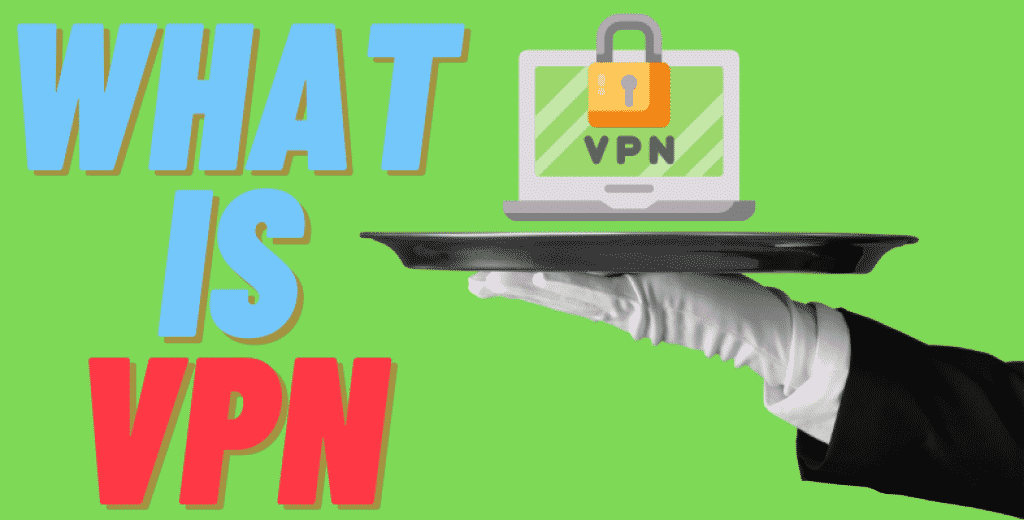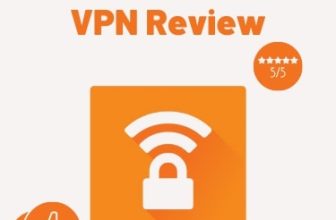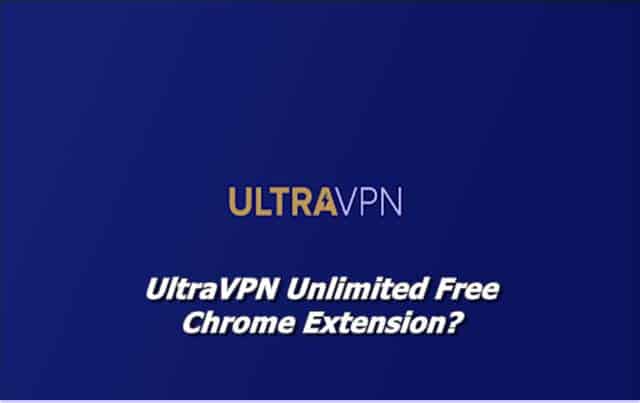VPS vs VPN – Free Comparison of Two Concepts
VPS vs VPN is two completely different concepts. Even so, many people confuse these two concepts. Perhaps this leads to confusion because these two concepts’ names are similar. So what is the difference between VPS vs VPN? Let’s learn about this together with app-how-to-use-it.com.
VPS vs VPN
What is VPS?
VPS (Virtual Private Server), also known as a virtual server, is a web hosting. It is Virtual Private Network, also known as a virtual private network (VPN). It is a service and technology that makes using the web confidential and anonymous.
VPS hosting is a good choice for those with high demands. They need more than shared hosting, but not enough to need a server. You’re not alone if you’re unsure what a Virtual Private Server is. There are many reasons to host your website on a VPS.
Dedicated servers have their unique advantages, and VPS hosting gives you the same power, flexibility, and affordability without the cost. But with so many differences, how do you know which is suitable for your website? Let’s find out.
VPS Pros and Cons
Pros of VPS Hosting
- Cost/Value
- Scalable
- More Secure
- Hosting on Auto-Pilot
- High Performance
Cons of VPS Hosting
- More Expensive
- Limited
- Not as Secure
- app-how-to-use-it.com/best-vpn-for-windows/
- app-how-to-use-it.com/nordvpn-review/
- app-how-to-use-it.com/protonvpn-review/
- app-how-to-use-it.com/avast-secureline-vpn-review/
- app-how-to-use-it.com/hola-vpn-review/
- app-how-to-use-it.com/free-vpn-extension/
- app-how-to-use-it.com/best-vpn-for-usa/
- app-how-to-use-it.com/best-free-vpn-for-mac/
- app-how-to-use-it.com/roobet-vpn/
Virtual Private Server
A Virtual Private Server (VPS) is a type of shared hosting that hosts the information of many clients on one physical machine. It uses software called a hypervisor to separate tenants. It provides the same privacy and functionality as a dedicated server while reducing costs.
A VPS VPN is installed on a single computer and can contain different types of software, including Web server software, FTP software, mail server software, and more.
Dedicated server
The main difference between a VPS and a dedicated server is the number of resources available. VPS hosting uses a hypervisor that shares resources with other sites on the server. So, if one place has a high traffic volume, the entire server will be slow.
But, a dedicated server will focus all its bandwidth and resources on one account. It will ensure optimal speed, and the server can handle heavy traffic without crashing. Dedicated hosting plans also differ from one another maintenance. While the host will maintain a managed program, unmanaged plans require you to perform all server maintenance.
Shared server
There are advantages and disadvantages to both shared and private servers. In its most basic form, a virtual remote server (VPS) is a powerful computer that stores data and serves it to web searchers.
Virtual private servers are less expensive than dedicated servers and offer users personal resources. They are separate pieces of hardware that are not available to other virtual servers.
Private server
A private server is a great choice when it comes to hosting websites. This type of server has several advantages. It offers guaranteed system resources, as a single server is divided into many mini-servers.
Unlike a traditional shared server, your website’s usage will not affect the performance of other clients. It is handy for websites that process sensitive information and accept payments online. Furthermore, a private server can help you keep your site running.
Unmanaged VPS
An unmanaged VPS is a type of virtual private server. Before purchasing one, you should consider the basic skills and knowledge necessary to manage the server. You will need to determine the resources and scalability of the server to meet your needs.
There are several vital differences between unmanaged VPS and managed VPS. Learn about each one in this article to make your decision easier. Unmanaged VPS is not for everyone.
Managed VPS
While shared hosting costs are generally more affordable, Managed VPS prices are getting thinner daily. So, while you don’t have to worry about maintaining your server, the best-managed VPS provider should offer the needed features.
If you’re a beginner, consider choosing a host that provides 24/7 support. You can also expect to receive comprehensive technical support if you need it. The following are some things to look for in a Managed VPS provider.
VPS Hosting Advantages
- Reduce costs – When renting a server with a VPS, we can access a physical server without incurring enormous costs for a comprehensive, powerful service that meets most of your needs.
- Server-configured options – You only have to pay to be able to use it. When using VPS, the user has full root privileges. So, you can customize the VPS configuration to your liking. It is also easy to add the necessary features to run the website.
- Easy Expansion – With VPS hosting, we can expand the number of server resources without too much time.
- Ability to control the server – Compared to Shared Hosting, VPS has higher access to the server. Add to that root access and the ability to run specific server scripts.
VPS vs VPN Reddit
When protecting your privacy online, you should never go without a VPN service. VPNs use the TCP IP protocol, which is not part of the Windows core system. Although it is free, the speed of VPNs is much slower than that of a VPS. For that reason, many users have chosen not to upgrade to a VPS, despite the speed difference between the two. Reddit.
VPS vs VM
Server resources can be instantiated, VPS, and virtual. In particular, VPS has some importance. Virtual appliances using shared resources VPS is not about a single application or system. You can change it, like RAM and CPU settings. With more power development for your website, you can grow your VPS. You can understand better if you read the article to the end.
What is VPN?
VPN stands for a virtual private network. It encrypts and hides your IP address and data so that no one can identify you online. This technology can unblock geo-restricted content and keep your online activity private.

VPNs also help prevent your data from being disclosed by your ISP. I hope you learn more about this technology and how it can benefit your online activities. Read on to learn more about what a VPN is.
VPN Pros and Cons
Pros of VPN Services
- Protect your online identity
- Secure online connections
- Bypass geo-blocking
- Prevent bandwidth throttling
- Bypass firewalls
- Better online gaming experience
- Avoid price discrimination
- Secure torrenting
- Protected file sharing
- Anonymity
Cons of VPN Services
- Free VPN means risk
- Quality VPN is costly
- Sometimes slow internet speed
- VPN blocker technology exists
- VPN connection may drop
- Difficult to configure sometimes
- Not built for all devices
VPN protects your connection while you are online
There are many benefits to using a VPN. Protects your connection when you’re online by preventing advertisers and companies from tracking your location.
For example, if you are shopping for flight tickets or hotel reservations online, you can find a better price if you use a VPN. Also, a VPN prevents price discrimination, which many retailers are guilty of. You will also have access to a local web page version of a website.
Hides your IP address
There may be some reasons for hiding the IP address. If you have sensitive information to look for, your IP address can be used to direct ads to you. It is helpful in law, banking, and journalism, among others.
It can be used to attack some targets with the information they get from you. It is also used to track purchases and other activities. You may also need to protect your personal information, as some countries watch their citizens’ internet activities.
Encrypts your data
VPN makes your data unreadable to hackers. It passes your data through its server before sending it to the intended recipient. The data appears to be taken from the VPN’s server, making it impossible for anyone to contact you.
Even if someone intercepts your internet traffic and reads your personal information, their IP address will give them much information about you. VPNs make this impossible by encrypting data before it leaves your computer.
Unblock geo-restricted content
VPN is an excellent solution for travelers worldwide as it allows you to access content unavailable in your region. Geo-blocking prevents you from accessing certain websites or videos and can also help you avoid restrictions on your mobile devices.
While these restrictions apply most to online games, they can also apply to other types of content, including premium multimedia content.
Protects against identity theft
With today’s online shopping and social media, identity theft is a huge problem worldwide. According to a recent study by Verizon, 32% of data breaches were caused by hacking and 52% by phishing.
These criminals are looking for money or personal information to commit fraud. Here are some of the most effective identity theft protection services to protect your data and online activity. Keep reading to learn more.
Allows you to share files with many people
VPNs allow you to share many files without being detected or tracked. It is helpful for privacy and security purposes, and you can use it to keep your location private.
Many agencies watch the internet, but not all downloads and file sharing are illegal. While torrenting services offer some privacy, they are ineffective at preventing unauthorized activity. VPNs are the only way to guarantee your privacy and not get caught in the crossfire of illegal activities.
VPN of Advantages
A VPN offers many other valuable features besides security when using the web. As:
- Access geo-restricted content – A VPN allows bypassing certain geo-restrictions. For example, you can watch a Netflix program unavailable in your country using a VPN.
- Data protection – VPN encrypts data before sending it over the network. Thus, the data will always be safe and secure.
- Safe Online – Using a VPN will improve your online security if you access unsecured public wi-fi networks.
Besides, VPN is much cheaper when compared to VPS vs VPN costs. The service price of a VPN is usually about the same as a Shared Hosting package.
What is the relationship between VPS vs VPN?
In short, VPS hosting is a service that allows websites to be hosted in a virtual server environment. VPN is a user-oriented tool that allows safe and secure browsing.
The only thing in common between the two VPS vs VPN is the virtualization aspect of each. Both serve entirely different needs, but both can be relied upon.
For example, if you need a large website and high traffic, hire VPS hosting to host your website. After that, you can use more VPN software while accessing the internet to manage the website. Thus, it protects all data most effectively while sending it over the internet.
Conclude
After this VPS vs VPN comparison, you can distinguish and understand the pros and cons of each service. From there, choose the service that best suits your needs.
VPN vs VPS: Which one should you choose?
You could say that most people should use a VPN just because they need it. We’re not that lazy, so we’ll leave it for last. Instead, we will compare VPNs to VPSs from various aspects.
Is it possible to connect a VPS with a commercial VPN?
Yes, you can. Yes. When you’re done, connect to your VPS and run the VPN app.
No need to worry about VPN encryption for your VPS. As long as the VPN is already connected, everything you do online will be protected.
Note that your speed may be slower than usual, especially if the VPS server and VPN server are far away from you.
VPS vs VPN: Which do you prefer?
We shared our thoughts. What do you think? What are your thoughts on VPSs and VPNs? Which is better for protecting your online privacy? Or do you offer good torrenting experiences?
We’d love to hear from you in the comments. Please let us know if you have any other suggestions on how a VPN might be better than a VPS or vice versa.
Is a VPS better than a VPN?
A significant difference between a VPS vs VPN is the target audience. A business website can’t afford to pay for a dedicated server. Yet, VPS is an affordable alternative that gives the business owner total control over the hosting services.
Compared to shared hosting, VPS is more flexible and allows users to scale their sites to a larger size. Advanced actions, such as installing third-party software and reconfiguring server settings, are possible with a VPS. But, business owners need to understand the differences between a VPS and VPN before deciding on one of them.
A VPS can handle high traffic and run advanced web applications compared to shared hosting. eCommerce platforms rely on VPS because they can manage many customer transactions with complete control over the server. They’re also cheaper than a VPN and give the owner full control over their website.
Both services provide privacy and security, but which is better for your business? The answer depends on your needs. Companies with high traffic tend to prefer a VPS, while individuals who travel or work from remote locations may find a helpful VPN. But which one is right for you? Read on for the differences between VPS and VPN. This article will help you decide which service is best for your business.
A VPS is a computer that runs various software. It serves as a virtual butler for a network of devices. The virtual server you buy is only accessible by the user who purchased it. A VPN offers protection through encryption, while a VPS provides privacy and security. If you’re unsure, check out the VPS pricing. You might be surprised to learn that the former costs more than a VPN and is the best option for many users.
Can a VPS be used as a VPN?
Setting up a VPN on a VPS is a complex process. This kind of setup is performed by network engineers looking to create a private channel or sandbox. Consider downloading a VPN app to get the best VPN experience for the lowest price.
The best VPN service allows you to connect to a private server, where your IP address is static. That way, it is not traceable. But VPS isn’t secure. Some VPS providers don’t allow VPNs on their servers or need programming skills. VPN Unlimited is the ideal solution to get the best VPN service for VPS access.
While a VPN is a secure way to connect to a public network, a VPS allows you to hide your IP address and use it for private purposes. A VPS server exchanges its primary host computer with different virtual machines, each with its storage and processing power. While a VPN can work in any environment, VPS is better for privacy. The security of a VPN depends on how you set up the VPN on the server.
A VPS is a virtual server used to host a website, email, application, or another type of web application. Its primary purpose is to allow you to surf the internet. It also protects your private data from hackers, preventing them from breaching your security.
What is a VPS used for?
A VPS stands for a virtual private server. It is like a townhouse in that it is one structure but split into several units, each with its resources. It benefits businesses since individuals don’t need to share their resources with others. A VPS also offers higher performance because each individual has a physical server. You can host many websites on the same VPS.
A VPS is great for developers and designers. You can install any tools you need to create or run a software application because you can work from your own VPS to complete tasks faster. During development, you must test the application on live systems to ensure that everything works well and that no bugs are present. Testing is essential for a successful launch. A VPS lets you do this.
A VPS can increase your website’s performance and allow you to install as much software as possible. Moreover, it offers the flexibility to choose your OS and software. Its native hypervisor means that you can install any OS.
The other benefit of a VPS is that you have complete control over the performance of your server. You know when to upgrade and when to downgrade it. You can also check server logs and use other programs on your VPS. Finally, a VPS is safer and more reliable than shared hosting.
We recommend that you read our previous Roobet VPN article.
Contents





